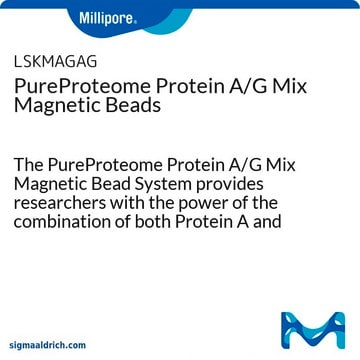11034731001
Roche
Primer "random"
lyophilized, sufficient for ≤400 reactions, pkg of 2 mg (Primer, Random pd(N)6 Potassium Salt)
Synonym(s):
primer
Sign Into View Organizational & Contract Pricing
All Photos(1)
About This Item
UNSPSC Code:
41106300
Recommended Products
form
lyophilized
Quality Level
usage
sufficient for ≤400 reactions
packaging
pkg of 2 mg (Primer, Random pd(N)6 Potassium Salt)
manufacturer/tradename
Roche
storage temp.
−20°C
General description
p(dN)6
Application
Primer "random" has been used:
- in a reverse transcription-polymerase chain reaction (RT-PCR) and quantitative PCR (qPCR) to retro-transcribe RNA
- to reverse-transcribe RNA samples to cDNA
- in digital droplet PCR (ddPCR) to synthesis cDNA from RNA
Primer for cDNA synthesis
Features and Benefits
- Offers a consistent representation of all RNA sequences in mRNA
- Can prime cDNA transcription from RNAs lacking a poly(A) tail
- Short cDNA transcripts can overcome the challenges posed by RNA secondary structures
- The average length of cDNAs formed can be controlled by adjusting the ratio of random primers to RNA in the reverse transcription (RT) reaction
Other Notes
For life science research only. Not for use in diagnostic procedures.
Storage Class Code
12 - Non Combustible Liquids
WGK
nwg
Flash Point(F)
does not flash
Flash Point(C)
does not flash
Certificates of Analysis (COA)
Search for Certificates of Analysis (COA) by entering the products Lot/Batch Number. Lot and Batch Numbers can be found on a product’s label following the words ‘Lot’ or ‘Batch’.
Already Own This Product?
Find documentation for the products that you have recently purchased in the Document Library.
Customers Also Viewed
Monika Hiller et al.
PloS one, 13(10), e0204485-e0204485 (2018-10-03)
Duchenne muscular dystrophy is a lethal disease caused by lack of dystrophin. Skipping of exons adjacent to out-of-frame deletions has proven to restore dystrophin expression in Duchenne patients. Exon 51 has been the most studied target in both preclinical and
Vadim Alexandrov et al.
Nature biotechnology, 34(8), 838-844 (2016-07-05)
Rapid technological advances for the frequent monitoring of health parameters have raised the intriguing possibility that an individual's genotype could be predicted from phenotypic data alone. Here we used a machine learning approach to analyze the phenotypic effects of polymorphic
Amaresh C Panda et al.
Nucleic acids research, 44(5), 2393-2408 (2016-01-29)
Skeletal muscle contains long multinucleated and contractile structures known as muscle fibers, which arise from the fusion of myoblasts into multinucleated myotubes during myogenesis. The myogenic regulatory factor (MRF) MYF5 is the earliest to be expressed during myogenesis and functions
Vittoria Pagliarini et al.
Journal of neurochemistry, 153(2), 264-275 (2019-12-08)
Spinal muscular atrophy (SMA) is a motor neuron disease caused by loss of function mutations in the Survival Motor Neuron 1 (SMN1) gene and reduced expression of the SMN protein, leading to spinal motor neuron death, muscle weakness and atrophy.
Piergiorgio La Rosa et al.
Journal of neurochemistry, 157(4), 1153-1166 (2020-09-23)
Neural Progenitor Cells (NPCs) are multipotent cells that are able to self-renew and differentiate into neurons. The size of the initial pool of NPCs during the brain development strongly affects the number of neurons that compose cortical multi-layer during development.
Our team of scientists has experience in all areas of research including Life Science, Material Science, Chemical Synthesis, Chromatography, Analytical and many others.
Contact Technical Service












